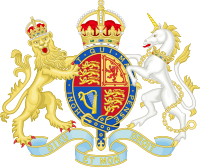Ministerial ranking

Ministerial ranking refers to the different levels or positions that ministers can have within a government. Think of it like a ladder or a staircase, with each step representing a different level of importance and responsibility.
At the very top of the ladder is the Prime Minister. The Prime Minister is like the captain of a ship or the leader of a team. They are in charge of making decisions for the whole government and leading the country. The Prime Minister is the most important minister and has the ultimate say in what happens.
Below the Prime Minister are other ministers who are appointed by the Prime Minister. These ministers are like team members or officers on a ship. They have specific areas of responsibility, like education, health, finance, or defense. Each minister is in charge of their own department and makes decisions and policies related to their area.
Within the group of ministers, there are different levels of ranking. Some ministers are more important than others, just like there are different positions in a sports team. The highest-ranking ministers have more power and influence and are often considered to have more important roles.
To determine the ranking, there are a few factors that are considered. One important factor is the importance of the department or ministry that the minister is in charge of. For example, the minister of defense, who is responsible for the country's safety and military, might be ranked higher than the minister of culture, who is responsible for promoting arts and entertainment.
Another factor that determines ranking is the experience and seniority of the minister. If a minister has been in the government for a long time and has a lot of experience, they might be ranked higher than a new minister who is just starting their job.
Ministerial ranking is important because it helps to organize and structure the government. It ensures that decisions are made by the most qualified and experienced people and that important areas of responsibility are given appropriate attention. It also helps to establish a hierarchy and lines of authority within the government, so that everyone knows who is in charge of what.
Overall, ministerial ranking is like a way of organizing the government into different levels of importance and responsibility, with the Prime Minister at the top and other ministers ranked based on their department and experience.
At the very top of the ladder is the Prime Minister. The Prime Minister is like the captain of a ship or the leader of a team. They are in charge of making decisions for the whole government and leading the country. The Prime Minister is the most important minister and has the ultimate say in what happens.
Below the Prime Minister are other ministers who are appointed by the Prime Minister. These ministers are like team members or officers on a ship. They have specific areas of responsibility, like education, health, finance, or defense. Each minister is in charge of their own department and makes decisions and policies related to their area.
Within the group of ministers, there are different levels of ranking. Some ministers are more important than others, just like there are different positions in a sports team. The highest-ranking ministers have more power and influence and are often considered to have more important roles.
To determine the ranking, there are a few factors that are considered. One important factor is the importance of the department or ministry that the minister is in charge of. For example, the minister of defense, who is responsible for the country's safety and military, might be ranked higher than the minister of culture, who is responsible for promoting arts and entertainment.
Another factor that determines ranking is the experience and seniority of the minister. If a minister has been in the government for a long time and has a lot of experience, they might be ranked higher than a new minister who is just starting their job.
Ministerial ranking is important because it helps to organize and structure the government. It ensures that decisions are made by the most qualified and experienced people and that important areas of responsibility are given appropriate attention. It also helps to establish a hierarchy and lines of authority within the government, so that everyone knows who is in charge of what.
Overall, ministerial ranking is like a way of organizing the government into different levels of importance and responsibility, with the Prime Minister at the top and other ministers ranked based on their department and experience.
Related topics others have asked about:
